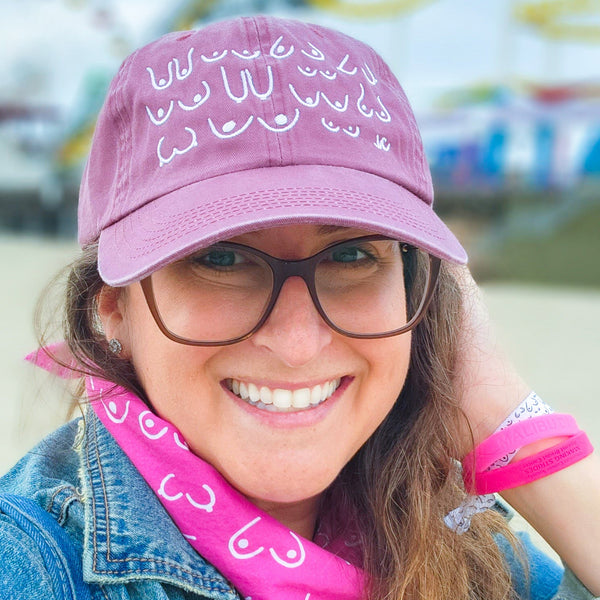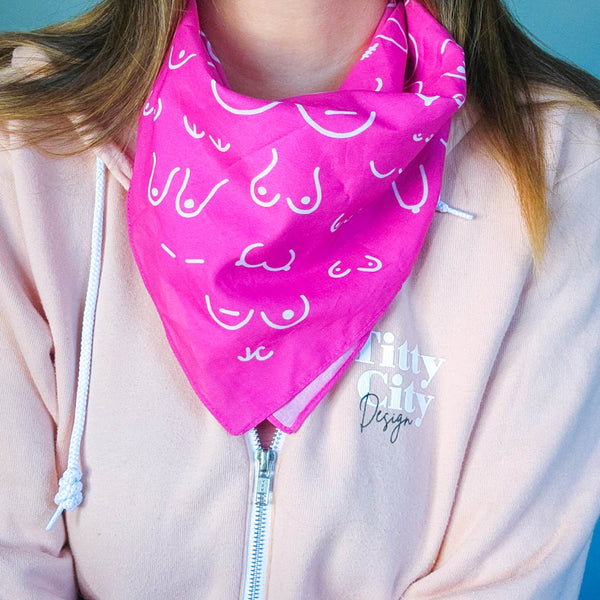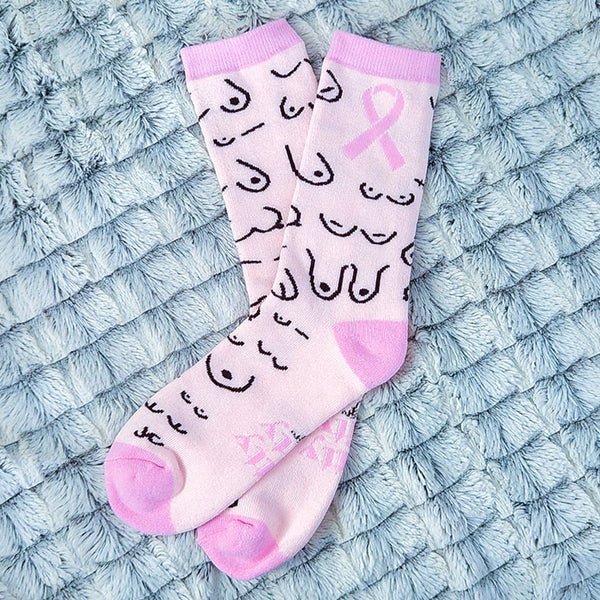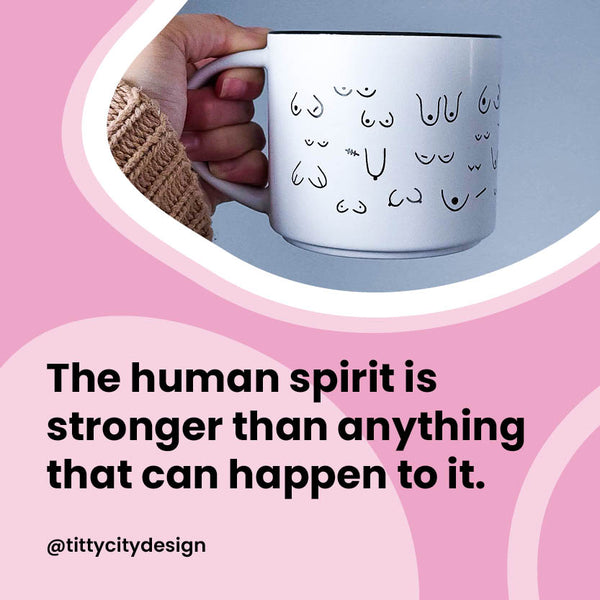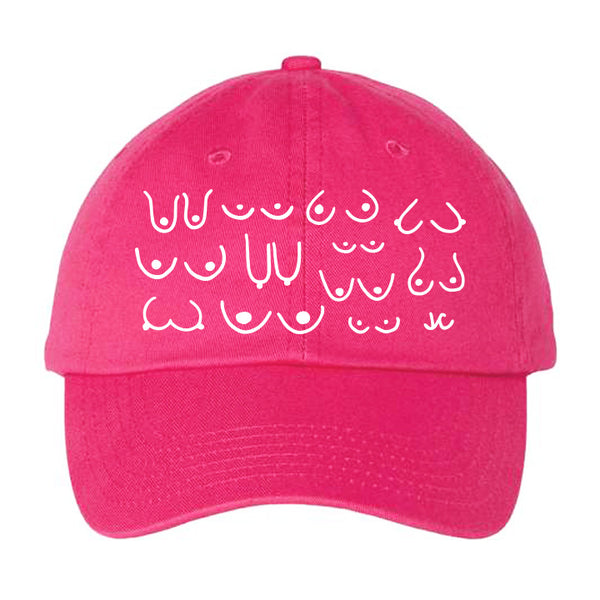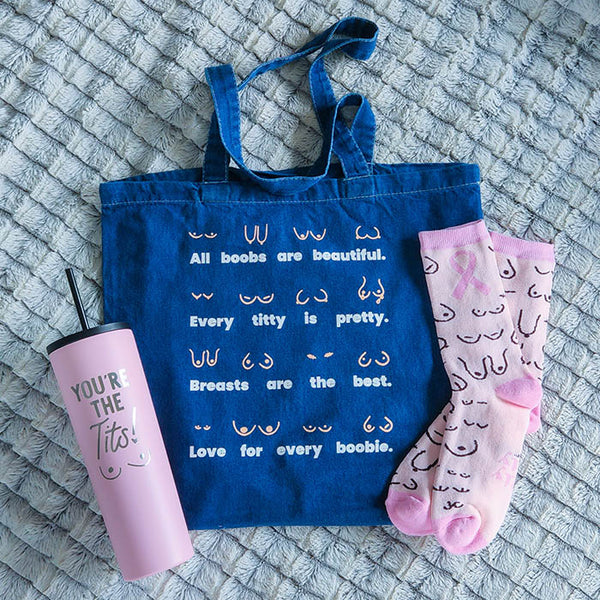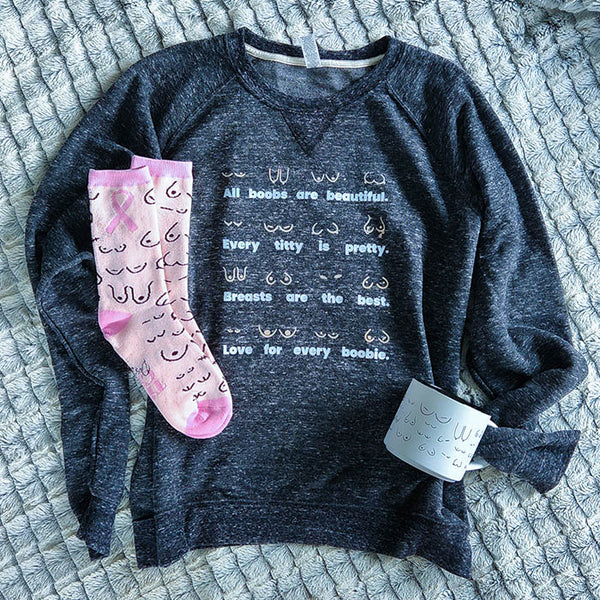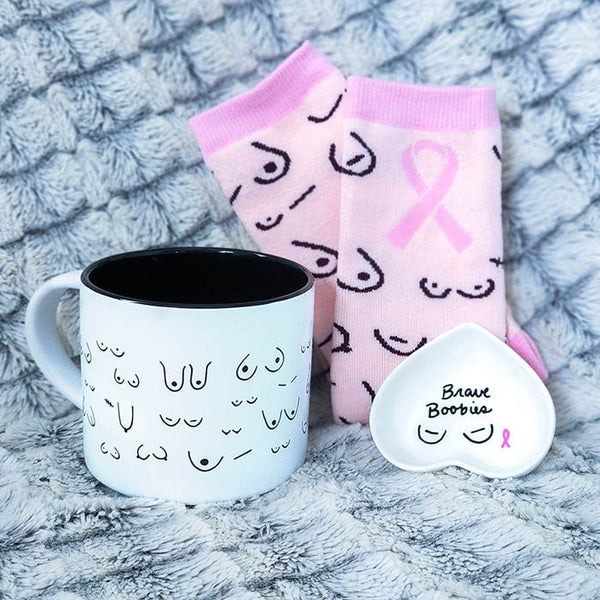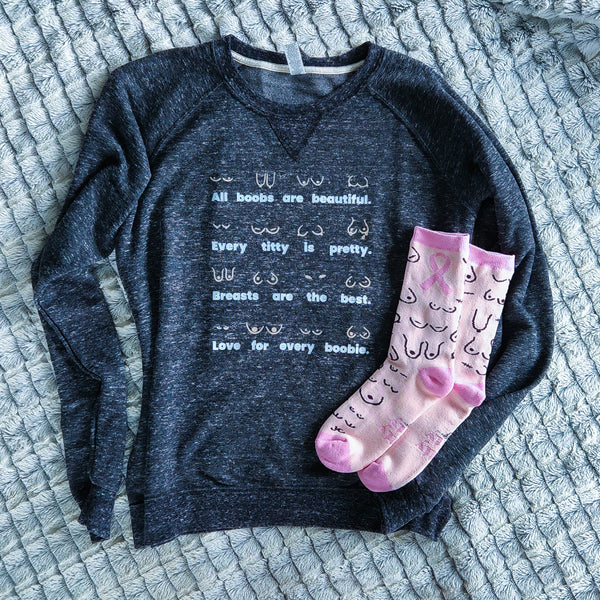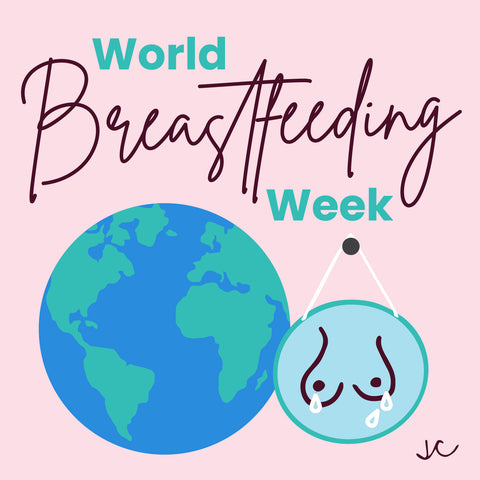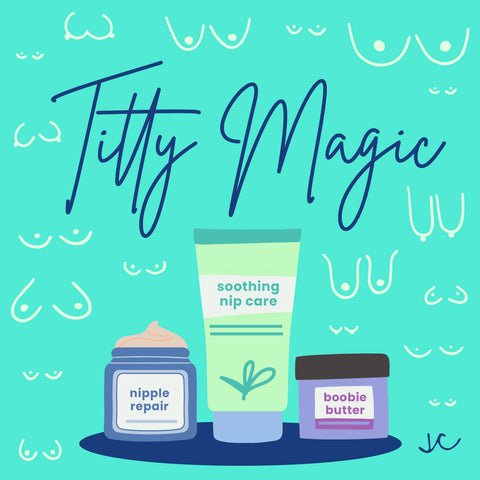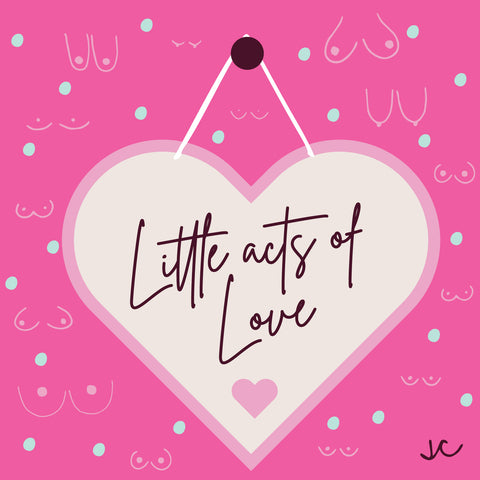Mastectomy: A Useful Guide to Help You
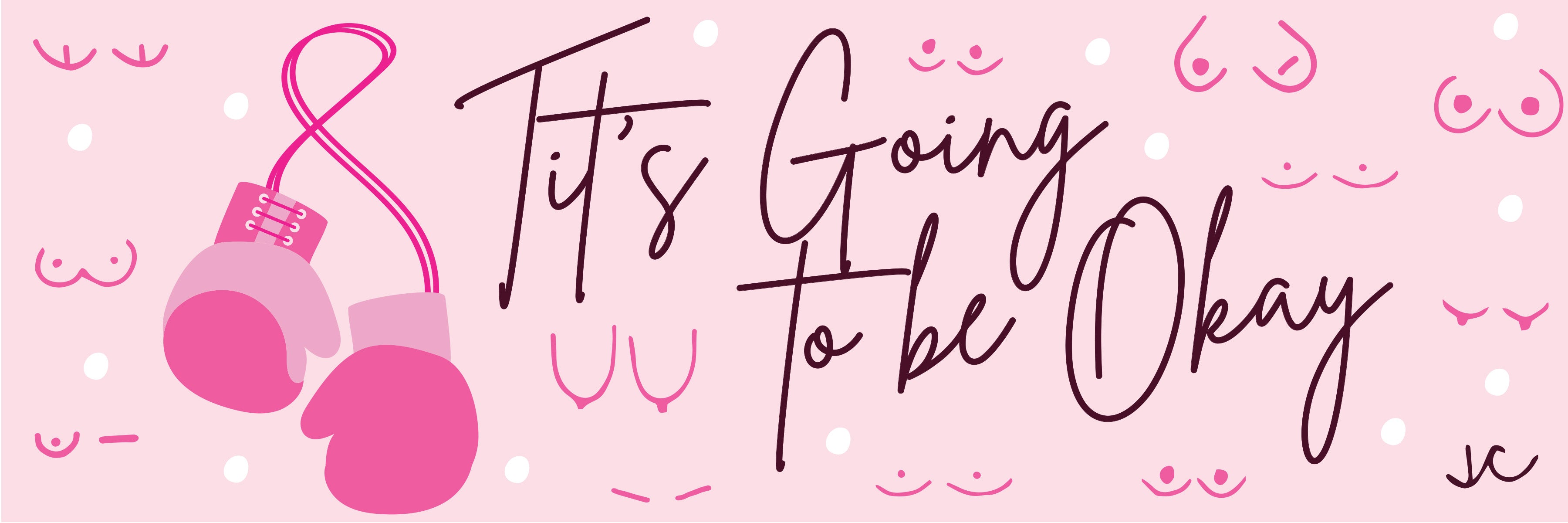
Estimated read time: 17 minutes
So glad you're here. This is everything you need to know about mastectomies.
If you or a loved one has just found out that you need a mastectomy, then we’re so sorry mama. We know what a tough and scary time this is for you.
Having a mastectomy, for breast cancer or risk-reducing reasons, can be a major life change, and there is so much information to take in.
We’ve written this guide to mastectomies to help shed a little light on the subject. Answering questions from what is a mastectomy, the different types of mastectomy, life after mastectomy, and everything in between.
We hope it helps, and we’re so proud of how strong you are Breastie.
In this article:
- What is a mastectomy?
- Types of mastectomies
- Life after mastectomy and mastectomy recovery
- Mastectomy bras
- What is a mastectomy pillow?
- Types of mastectomy scars
- Mastectomy scar tattoos
- Mastectomy gift ideas
What is a mastectomy?
A mastectomy is the surgical removal of the entire breast and breast tissue, and it’s offered as an option for women who have:
- Invasive breast cancer (non-metastatic)
- Inflammatory breast cancer
- Ductal carcinoma in situ (non-invasive breast cancer)
- Paget disease of the breast
During a mastectomy, your surgeon generally removes all your breast tissue from the affected breast. They will usually also remove some of your underarm lymph nodes to check if the cancer has spread.
In most cases, a breast reconstruction may be offered to make a new Boobie after removing the breast tissue. This is when the surgeon creates a new breast, either using tissue from another part of your body, an implant, or, in some cases, both.
Following diagnosis from a mammogram, breast reconstruction can be done at the same time as a mastectomy (also known as immediate reconstruction), or you might choose to wait sometime before having it done - if at all. This is known as delayed reconstruction, and it’s always your choice whether or not to have reconstruction surgery.
Every woman is different and has their own preferences, so it’s always important to speak to your doctor about your thoughts and feelings and do what’s right for you.
Some women choose not to wear a prosthesis (we’ll talk about this in a minute) or have breast reconstruction. This will leave you with a flat area where your breast/s were. Being beautifully flat is a choice made for various reasons, such as not wanting to have more surgery, choosing not to wear prostheses for comfort reasons, and wanting to get back to your regular life as quickly as possible.
The important thing is to always do what’s best for you and your life. Your doctor and breast care nurse are there to support you and answer any questions you might have about your options, including any pros and cons.
Types of mastectomy
When it comes to mastectomy, there isn’t a one size fits all answer. There are several different types of mastectomy, and your doctor will work with you to decide which is the best option for your situation.
Unilateral mastectomy
This is known as a single mastectomy, where one breast is removed.
If you’re diagnosed with early-stage cancer in one breast, you have a choice whether to have a single mastectomy or a bilateral mastectomy (double). This is a tough decision to make mama, and many women choose to have a double mastectomy because they’re worried that they might develop cancer in their remaining breast, or they’re concerned about the cosmetic appearance of their breasts.
If you have any concerns or worries speak to your doctor so you are able to make an informed decision about what would be best for you.
Bilateral mastectomy
Also known as a double mastectomy, this is the removal of both breasts. This is recommended when cancer is present in both breasts or if you have a high risk of developing a second breast cancer. This can be due to a strong family history or an inherited genetic mutation linked to breast cancer.
Simple mastectomy
Also known as a total mastectomy, this is where all of the breast tissue, the skin of the breast, and the nipple and areola are removed.
Modified radical mastectomy
During this mastectomy, all the breast tissue, the skin, and the nipple and areola are removed and your surgeon will perform an axillary lymph node dissection to check whether the cancer has spread.
Skin-sparing mastectomy
This type of mastectomy removes all the breast tissue but leaves as much healthy skin as possible. This can be done if your surgeon is planning to immediately reconstruct your breast, as it allows for a more natural-looking reconstruction.
Nipple-sparing mastectomy
With this type of mastectomy, all the breast tissue is removed but your nipple, areola, and the overlying skin are left. This option won’t be considered, however, if the cancer includes the nipple.
Radical mastectomy
This is when all the breast tissue, nipple, areola, axillary lymph nodes, skin, and chest wall muscles underneath the breast are removed.
Modified radical mastectomy
Similar to a radical mastectomy, but the chest wall muscles are left intact.
Prophylactic mastectomy
Also known as a preventative mastectomy, this is done to reduce the risk of developing breast cancer if you are found to be high risk (such as a strong family history, BRACA1 or BRACA2 gene mutation, or abnormal changes to your breast tissue).
Salvage mastectomy
This is when a second surgery is performed if cancer has returned in a previously treated breast.
Life after mastectomy and mastectomy recovery
The goal of a mastectomy is to remove only as much tissue as is necessary to treat your cancer.
Your surgeon will talk to you about life after mastectomy and mastectomy recovery, as every patient is different and will need different aftercare. Some procedures, such as a lumpectomy, don’t usually require a stay in the hospital, but larger mastectomies often require a longer hospital stay.
You will likely have drainage tubes and will need several weeks to recover, rest, and take care of yourself, and depending on the results of your surgery, your doctor may recommend radiation or chemotherapy to shrink tumors or destroy any remaining cancer cells.
After your mastectomy, it’s important to keep on top of any pain medication your doctor prescribes. Your doctor or nurse will show you how to take care of your dressings and will book you in for a follow-up visit.
To prevent your arm or shoulder from becoming stiff, your surgeon or nurse will show you a gentle exercise routine you can do at home. Make sure you ask as many questions as you want, such as what you can and can’t do and for how long, so you can feel comfortable doing these when you leave the hospital.
It can take a few weeks to recover after surgery, and longer if you’ve had breast reconstruction. Make sure you rest as much as possible, follow your doctor's instructions about pain medication and showering, get as much help and support from friends and family as possible, and take all the time you need to heal.
You’ll also need to monitor your wound for possible signs of infection. If you notice any warmth, redness, discharge, or you spike a fever, call your doctor so you can get the help you need.
Mastectomy bras
You might be offered a breast prosthesis after your mastectomy (if you chose not to have breast reconstruction. This is an artificial breast shape that sits inside your bra to replace - either part - or all of your breast.
There are both temporary and permanent prostheses. A temporary prosthesis is made from very soft, lightweight fabric (often called a cumfie or softie), and it can be worn right after your surgery, as it’s very soft and doesn’t put any pressure on your wound.
Once you’ve started to heal, you can start wearing a permanent prosthesis, if you choose to. They are normally fitted at the hospital where you had your surgery, and there are many types available. They come in different shapes, sizes, and colors and are made from silicone, which has a soft, skin-like feel.
Once you have your prosthesis, you can buy a special mastectomy bra if you wish (although some women find a well-fitted bra is often all they need to hold their prosthesis in place). There are many companies that supply these bras, in a range of styles and designs. These bras have a pocket built-in, to help the prosthesis sit more securely.
What is a mastectomy pillow?
Mastectomy pillows are designed to help you heal and bring relief after your surgery by protecting your incisions by keeping pressure off your chest. They can be used in a hospital, in bed, in a car, or just provide that extra bit of comfort at home.
They are usually small and thin enough to fit under your arm and placed between your chest and seatbelt when riding in a car.
The different kinds of mastectomy pillows include:
- Seatbelt pillow
- Armpit pillow
- Armrest pillow
- Breast support pillow
- Between breasts pillow
- Knee pillow
- Neck pillow
- Lower back pillow
- Donut pillow
- Wedge pillow
Mastectomy pillows come in all shapes and sizes, and you can use other pillows (such as knee, wedge, and donut pillows) to help with the pain that can come in other parts of your body post-surgery, or while undergoing treatment.
Types of mastectomy scars
The extent of your mastectomy scar will be based on the type of mastectomy you have and the type of incision, but the most common scars are a horizontal line, diagonal line, or a half-moon shape.
Often, the incision type and the resulting scar will depend upon the original location of the breast cancer lesion. As your wound heals, your brave scar will form.
Mastectomy scar tattoos
Some awesome women choose to get a decorative tattoo on their breast or chest after having a mastectomy. These are known as mastectomy tattoos, and people may consider getting one for a number of reasons, such as:
- Covering or disguising their scar.
- Giving them more confidence after treatment.
- Creating something permanent and personal after going through treatment.
- Celebrating their strength and courage.
If you want to get a mastectomy tattoo, then you need to make sure your operation sites and wounds are completely healed, which can take around a year. Always check with your doctor before considering tattooing the area though.
You can visit several tattoo studios to get an understanding of what happens and to speak with people who might already have performed mastectomy tattoos. It’s important to work with someone you feel comfortable and confident with, and who understands what you want.
A bit of health and safety here, but make sure the person doing your tattoo is fully registered and has up-to-date health and safety certificates.
Mastectomy gift ideas
If you have a loved one who needs a mastectomy, then you might be wondering about getting them a present to cheer them up or show them how much you care.
You’re amazing mama, and we know your loved one will really appreciate your kind thoughts.
There are several gifts for mastectomy patients you can get, that not only come from the heart but also serve a purpose. Gifts for breast cancer patients need to be thoughtful and helpful. They can be something they take into hospital with them, either for surgery or treatment, and things they can use when they get home.
Here are a few of our favorite gifts for mastectomy patients featuring our Brave Boobies design.
Chemo Care Package
This breast cancer patient gift is ideal for when a loved one is going through chemo or other treatments. It’s been thoughtfully put together to include a pair of cozy Brave Boobies socks, a super cute pink tumbler, and a body-positive tote bag to keep all their things together.
Breast Cancer Warrior Gift Set
Treat the brave woman in your life to this gorgeous breast cancer gift. Featuring our super comfy ‘Every Titty is Pretty’ sweatshirt, our soft and thick Boob socks, and our signature Hot Tits mug so they can sip their tea or coffee and feel empowered.
My Brave Bestie Breast Cancer Patient Gift Set
Give your brave Breastie all the love she deserves with this sweet gift set. Included are our signature Hot Tits mug, cozy Boob socks with Brave Boobies design, and our beautiful Brave Boobies ring dish.
Breast Cancer Survivor Gift Set
Has your loved one kicked cancer’s ass? Then she deserves to be celebrated. Celebrate her strength and bravery with this gift set, which includes our pink Brave Boobies socks, and cozy, comfy body-positive sweater.
Whatever you choose to get, as long as it’s personal, practical, and given with love, you can’t go wrong. You’re amazing Breastie, and we’re proud of you too.
You’ve got some Brave Boobies
And we think you’re the Tits mama.
If you’re going through breast cancer treatment, having a mastectomy, or supporting a loved one on their breast cancer journey, then we want you to know you’re brave, you’re strong, and you’ve got this.
If you ever need more support, guidance, or advice, Breastcancer.org has a wealth of services, as well as support networks and forums.
At Titty City Design, we believe that every boobie is beautiful, and that should be celebrated. We are a female-owned and operated, small business here to spread self-love and body positivity with our line of boob apparel, boob accessories, and boob-themed decor and products for the home. A portion of our proceeds goes to help support postpartum people and breast cancer patients.
Gifts for Mastectomy Patients




